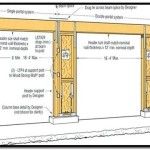Do I Need a 1/2 HP or 3/4 HP Garage Door Opener?
Choosing the right garage door opener involves several factors, and horsepower (HP) is a crucial one. While other features like smart home integration and safety sensors are important, the motor's horsepower determines its lifting power. This article explores the differences between 1/2 HP and 3/4 HP garage door openers to help homeowners make informed decisions.
A 1/2 HP garage door opener is the standard for many residential applications. It provides sufficient power for lifting most standard-sized garage doors made of common materials like steel or aluminum. These openers are typically more affordable and energy-efficient than their higher-horsepower counterparts. They are a suitable choice for single-car garages and doors of average weight and height.
A 3/4 HP garage door opener offers more lifting power. This added strength makes them ideal for heavier garage doors, such as those made of solid wood or featuring insulation. Larger, double-car garage doors also benefit from the increased power of a 3/4 HP opener. While generally more expensive than 1/2 HP models, the extra power provides a smoother and more reliable operation, especially for frequently used doors.
Beyond the basic horsepower difference, several other factors influence the choice between these two options. The door material plays a significant role. Heavier materials like solid wood require more lifting force, making a 3/4 HP opener a necessity. Lighter materials like aluminum or steel can be adequately handled by a 1/2 HP opener.
Door size is another crucial consideration. Double-car garage doors, being larger and heavier than single-car doors, typically require the added power of a 3/4 HP opener. For larger, heavier doors, the strain on a 1/2 HP motor can lead to premature wear and tear, potentially shortening its lifespan.
Frequency of use also impacts the choice. If the garage door is used multiple times daily, the added durability and power of a 3/4 HP opener offer long-term benefits. For less frequent use, a 1/2 HP opener often suffices.
Climate can also influence the decision. In regions with extreme temperatures, the added power of a 3/4 HP opener can help overcome the effects of expansion and contraction of the door material, ensuring reliable operation in both hot and cold weather.
Features like soft-start and soft-stop functionality can contribute to the longevity of the garage door opener and reduce wear and tear on the door itself. These features are available in both 1/2 HP and 3/4 HP models. They gradually increase and decrease the motor's speed at the beginning and end of the door's travel, resulting in smoother and quieter operation.
Safety features, such as safety sensors and automatic reversal systems, are essential components of any garage door opener. These features are standard in both 1/2 HP and 3/4 HP models and should not be compromised regardless of the horsepower chosen. They protect against accidents by automatically reversing the door's movement if an obstruction is detected.
The warranty offered with the garage door opener provides further insight into its expected lifespan and reliability. It's essential to compare warranties between different models and manufacturers when making a decision. Longer warranties often indicate higher quality and durability.
The budget allocated for the garage door opener purchase naturally plays a role. 1/2 HP openers are typically more budget-friendly. However, investing in a slightly more expensive 3/4 HP opener may provide long-term cost savings due to increased durability and reduced maintenance needs.
Consulting with a professional garage door installer can provide personalized recommendations based on specific needs and circumstances. They can assess the existing garage door, consider factors like size, material, and frequency of use, and recommend the appropriate horsepower for optimal performance and longevity.
Understanding the different garage door materials is crucial. Steel doors, the most common type, are available in various thicknesses and insulation levels. Aluminum doors are lighter and more resistant to rust but may be less durable than steel. Wooden doors offer aesthetic appeal but require more maintenance and are heavier, often necessitating a more powerful opener.
Considering the specific needs and circumstances of the homeowner is paramount. Evaluating factors like door material, size, frequency of use, climate, and budget will lead to an informed decision that provides a reliable and efficient garage door operation for years to come.
While horsepower is a key factor, focusing solely on this metric overlooks other important aspects. Prioritizing safety features, considering the door material and size, and evaluating the frequency of use are equally important considerations in selecting the right garage door opener.

How Much Horsepower Does My Garage Door Opener Need Quality Overhead

1 2 Vs 3 4 Horsepower Garage Door Opener What S The Difference

How Much Horsepower Does Your Garage Door Opener Need

How Much Horsepower Do I Need For A 2 Car Garage Door Opener

1 2 Vs 3 4hp Garage Door Openers Which Do You Actually Need

Garage Door Openers How Much Horsepower Do I Need Gold Label

Can A Garage Door Opener Be Too Powerful Don T Break It

Garage Door Opener Guide The Home Depot

¾ Hp Chain Drive Garage Door Opener With Two Multi Function Remotes Keypad And Motion Detecting Wall Contro L Doorworks

Genie Signature Series 1 4 Hpc Ultra Quiet Belt Drive Garage Door Opener With Battery Backup 7055d Tksv The Home Depot
Related Posts








